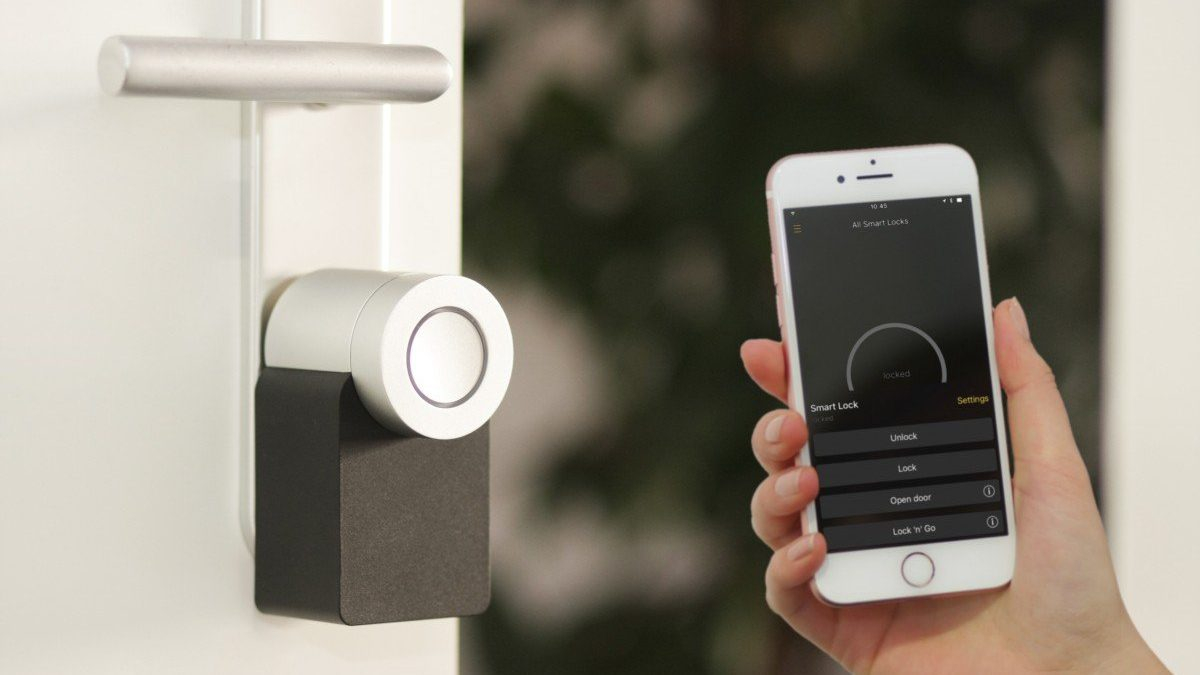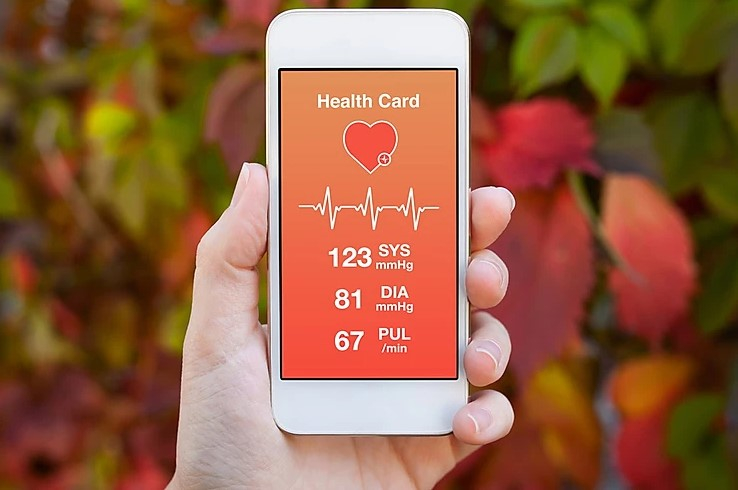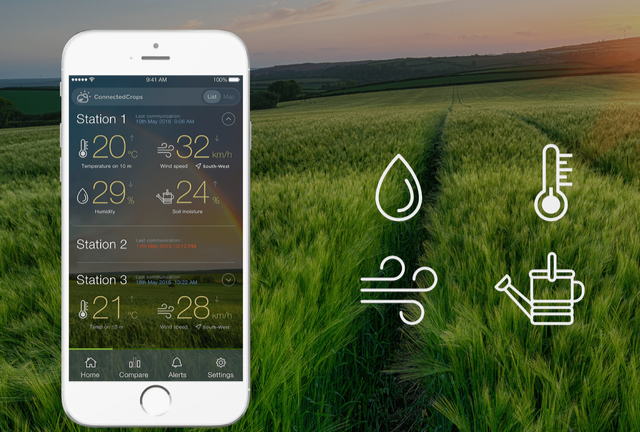The Future of IoT Revolution: Mobile Apps
With the origination of humankind, there were people to people relations. Later, humanity was surprised about the idea of people to computer connection. Today, machine to machine interaction is gradually becoming a common phenomenon for us. This is IoT (short form of Internet of Things) which refers to a system of devices connected in a network.
Although the term IoT became very popular only recently, it has a long history. You may be surprised about the arguable fact that the first IoT device dates back to 1999. They say it was in the form of a toaster which could be switched on and off over the Internet. Whether this is a 100% real fact or not, the IoT revolution is destined to change human life in the digital globe.
Currently, humanity cannot imagine a reality without the Internet. We go digital throughout every single phase of our life because the current trends don’t leave another chance to take. Every minute the world is being changed around us. To go along with all these changes and adapt ourselves to reality, we need to be ready to face the future of the IoT revolution. If you also try to stay at the cutting edge of the Internet of Things, then you are in the right place. In this article, we will find out a possible outcome of the IoT revolution.
IoT fourth industrial revolution
In the 21st century, the IoT becomes everything - the Internet of everything. The IoT devices are everywhere around us - smartphones, applications, cameras, various smart electronics, and many more items.
The Internet of Things fourth industrial revolution has just begun, yet it has already changed how businesses operate. What the IoT does to influence on the industry is creating new opportunities for the industry to collect and accurately analyze information. In this revolution, smart devices play a significant role, while human input is minimalized. In this reality, especially, an extensive set of app solutions are introduced as IoT devices. Why applications? - Because they are fast, accessible, and immediate. People are with their smartphones everywhere. Smartphones help to manage apps easily so that these application solutions collect and act on the data they acquire from the environment. You may also read the article related to the best ways to monetize mobile apps.
What to expect from IoT for mobile apps?
IoT faces more challenges as the number of people using mobile apps increases day by day. Of course we cannot precisely predict what will be the next mobile app that will amaze the society. However, we can predict what features and peculiarities of applications in IoT are expected. Check out some of these coming trends below:
Big Data. Along with the increasing number of mobile apps, the IoT for applications spreads over various spheres of our life. As a result, it’s expected that the applications will generate more data.

Security & Privacy. The more data applications collect, the more essential the security issue becomes. In the forest of various applications developers try to build apps that are more secure and protect the users’ privacy. An example is online taxi ordering application which collects the user data such as phone number yet keeps it private. As a result, the driver is able to call the client, however the phone number isn’t shown to the driver.
Personalization. Applications become a form of business and they are created to meet the users’ needs. App personalization is an expected process for instance in the sphere of retail. Imagine that you may get notification about sales at your favorite brand on a usually-bought product.
Artificial Intelligence. AI is expected to be connected to IoT. Imagine how efficient may be the correlation of two data-driven technologies. This integration will help the users to get a precise and accurate insight regardless of the device.
We may see that mobile apps drive a great part of the IoT revolution. Very often, the extensive set of such IoT applications is divided into some categories. Let’s find these categories out, and identify the importance of mobile apps in our expected future.
1. Consumer applications
There is a term consumer IoT or CIoT in short, which includes all the applications created for consumer use. It evolves all kinds of wearable technologies, home automation, connected vehicles, etc. The most popular consumer IoT use case is the smart home. This is a single part of the broad concept of home automation. It may include the systems of lightning, heating, air conditioning, and similar systems.

Smart applications collect all the data required and send to the interconnected devices so that the system is automatically turned off. Due to this automated system, energy-saving is assured as a long-term benefit. Such applications provide users with more freedom and a higher quality of life.
Another highly known smart home application system is elder care. These are to assist elderly people and people with disabilities. For instance, it may refer to voice control. Such apps are designed to support the users’ specific disabilities.
2. Commercial applications
Typical commercial applications refer to various spheres in the commercial arena including transportation, communication, medicine and healthcare, tourism, manufacturing, and many more.
The smallest influence of IoT on transportation is the vehicle to person connection (Your left is 1 minute away!). However, some newences revolutionize the industry. A bright example is onboard diagnostic ports that are installed in cars. Such devices help the manufacturers and mechanics to learn about the state of the car. The consumers can also have access to this portal through different devices and get some information about the car engine’s health.

The Internet of Medical (Health) Things is a smart healthcare application system that serves for healthcare purposes, including data collection, research analysis, and monitoring. The smart healthcare applications are destined to enable remote health monitoring and send notifications on an emergency. Such mobile apps monitor heart rate, sleep, track activities, caloric intake, and other similar metrics that help us to stay healthy.
3. Industrial applications
The Industrial Internet of Things refers to a high interrelation between operational technologies. Due to this interrelation, the applications collect data from connected devices, locations, and people. The scope of the system is wide, including various industrial areas such as manufacturing and agriculture.
4. Social applications
Mobile apps do more than we could imagine. A few years ago we wouldn’t expect that we can follow our children or pets while we are outside. Today it’s easy to keep an eye on your pet directly from your smartphone with the help of special GPS tags or in-built capabilities. Pawscout is a bright example of such a mobile app.
A BLE (Bluetooth Low Energy) GPS tag which is attached to the collar of the pet, connects the mobile app and let you track the pet’s location in a territory of a 200-feet radius. You get notifications when the pet leaves the area.
5. Agriculture applications
Agriculture is what has always been done by people. Yet, in the 21st century, even farming is smart. Some mobile apps are designed to support farmers. The smart sensors analyze various natural conditions such as air temperature, soil quality, humidity, etc.

An innovative application - Blossom not only offers information related to natural conditions, but it also provides an optimal watering schedule due to automated irrigation system.
To Sum Up
The deeper we go into the digital world, the better we realize that our future depends on technology. A decade ago, we didn’t even think that a mobile app may automatize our life and help us overcome our daily duties. Today we cannot imagine our lives without such applications, smartphones, cameras, etc.
Along with time, more efficient mobile apps are introduced. Mobile app developers do everything possible to design such applications that best suit the needs of the end-users. So, we expect to use more efficient and innovative mobile apps with strengthened data security.
And what is your opinion? How do you imagine the future of IoT in mobile? Let’s imagine the extraordinary and make it happen!

